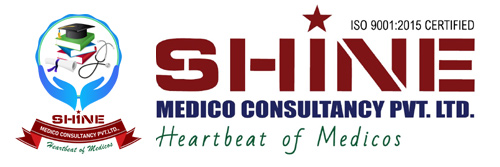MD in USA
MD programs in the United States typically extend over four years, requiring a bachelor’s degree with a focus on biology, chemistry, physics, and mathematics. The admission process is highly competitive, assessing candidates through academic achievements, MCAT scores, letters of recommendation, and interviews.
The curriculum incorporates classroom instruction and clinical rotations covering various medical subjects. Post-graduation, students enter residency programs to specialize further. Prospective students must complete prerequisite courses, achieve a strong academic record, and succeed in the MCAT exam. The application process involves submission through AMCAS, including transcripts, MCAT scores, letters of recommendation, and a personal statement. Successful applicants participate in interviews and, upon acceptance, navigate the National Resident Matching Program (NRMP) for residency placement.
Guidelines for aspiring students include early preparation, dedicated MCAT readiness, a well-rounded application emphasizing community service and clinical experience, research into suitable MD programs, establishing strong relationships for recommendation letters, interview practice, financial planning, and staying informed about admission criteria changes through regular updates from medical schools and AMCAS. Following these guidelines ensures a comprehensive and informed approach to pursuing MD education in the U.S
MD in the United States: Salient Features, Admission Process, and Guidelines:
Salient Features:
- Duration: MD programs in the U.S. typically span four years.
- Academic Prerequisites: A bachelor’s degree from an accredited institution is a prerequisite, with a strong emphasis on coursework in biology, chemistry, physics, and mathematics.
- Medical College Admission Test (MCAT): Applicants are required to take the MCAT, a standardized test that assesses problem-solving, critical thinking, and knowledge of natural, behavioral, and social science concepts.
- Competitive Admission: Admission is highly competitive, and applicants are evaluated based on academic achievements, MCAT scores, letters of recommendation, extracurricular activities, and personal interviews.
- Curriculum: MD programs involve both classroom-based instruction and clinical rotations, covering subjects like anatomy, pathology, pharmacology, and clinical skills.
- Clinical Rotations and Residency: Students undergo clinical rotations during the latter part of their program, and after graduation, they enter residency programs to specialize in a specific field.
Admission Process:
- Prerequisite Courses: Complete the required pre-medical coursework during your undergraduate studies, including biology, chemistry, physics, and mathematics.
- Bachelor’s Degree: Obtain a bachelor’s degree from an accredited institution, ensuring a strong academic record.
- MCAT Exam: In the Medical College Admission Test (MCAT) the student needs to achieve a competitive score.
- Application through AMCAS: Submit an application through the American Medical College Application Service (AMCAS), including academic transcripts, MCAT scores, letters of recommendation, and a personal statement.
- Letters of Recommendation: Secure strong letters of recommendation from professors, employers, or healthcare professionals.
- Interview: If selected, attend interviews with medical schools as part of the evaluation process.
- Acceptance and Residency Matching: Upon acceptance, complete the MD program, and subsequently participate in the National Resident Matching Program (NRMP) to secure a residency position.
Guidelines for Prospective Students:
- Early Preparation: Begin preparing early by selecting appropriate undergraduate courses and engaging in relevant extracurricular activities.
- MCAT Preparation: Devote sufficient time to MCAT preparation, considering review courses or study materials.
- Well-Rounded Application: Showcase a well-rounded application by excelling academically, participating in community service, and gaining clinical experience.
- Research Programs: Research MD programs to find those aligned with your goals, considering factors such as curriculum, faculty, and available resources.
- Letters of Recommendation: Establish strong relationships with professors and mentors to secure compelling letters of recommendation.
- Practice Interviews: Prepare for medical school interviews through practice sessions to articulate your motivations and experiences effectively.
- Financial Planning: Consider the financial implications of medical school and explore scholarship opportunities or financial aid options.
- Stay Informed: Stay informed about changes in admission criteria and requirements by regularly checking the official websites of medical schools and AMCAS.
- By adhering to these guidelines, prospective students can navigate the competitive admission process for MD programs in the U.S., ensuring a well-informed and successful entry into the field of medicine.

